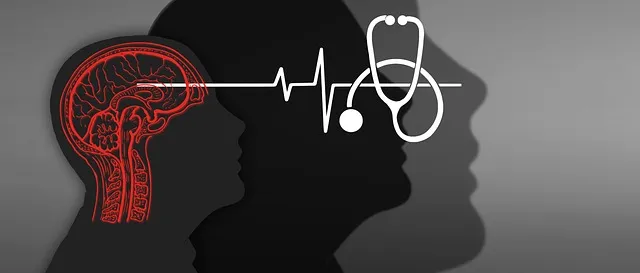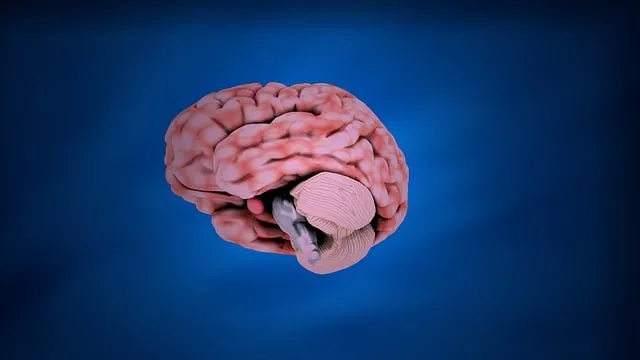Emotional Intelligence (EI), as highlighted by the Westminster Kaiser Permanente mental health center reviews, is a crucial tool for personal growth and well-being. It involves self-awareness, emotion management, empathy, and compassion cultivation, leading to better relationships, decision-making, and stress reduction. Mindfulness practices, educational programs, and journaling enhance EI skills, fostering mental wellness and reducing stigma around mental illness. The center's initiatives, including mindfulness meditation and mental wellness coaching, promote effective communication and understanding, contributing to a more compassionate society by building strong personal and professional connections.
Emotional intelligence (EI) is a powerful tool for personal growth and successful relationships, as highlighted by the esteemed Westminster Kaiser Permanente mental health center reviews. Understanding EI involves recognizing its role in self-awareness, self-management, empathy, and social skills. This article delves into these aspects, offering practical strategies to enhance EI. By exploring effective methods for self-awareness and self-regulation, building empathetic connections, and fostering robust social interactions, individuals can unlock their potential for personal and professional success.
- Understanding Emotional Intelligence: A Foundation for Personal Growth
- Strategies for Enhancing Self-Awareness and Self-Management
- Building Empathy and Social Skills for Effective Relationships
Understanding Emotional Intelligence: A Foundation for Personal Growth

Emotional intelligence (EI) is a powerful tool for personal growth and well-being, recognized as an essential aspect by many, including the Westminster Kaiser Permanente mental health center reviews. It goes beyond mere self-awareness; it’s about recognizing, understanding, and managing our own emotions while empathizing with others’ feelings. This complex skill set enables individuals to build strong relationships, make thoughtful decisions, and navigate challenging situations effectively.
At its core, EI fosters compassion cultivation practices, as highlighted in Mental Health Policy Analysis and Advocacy discussions. By developing emotional intelligence, people can reduce stress levels through various methods, such as mindfulness exercises and self-care routines, as suggested by Stress Reduction Methods reviews. These practices not only benefit individuals but also contribute to a more compassionate society where emotions are openly acknowledged and managed with care.
Strategies for Enhancing Self-Awareness and Self-Management

Building emotional intelligence begins with a deep dive into self-awareness and self-management. Strategies such as mindfulness practices, meditation, and journaling can significantly enhance an individual’s ability to recognize and understand their emotions. These techniques encourage folks to navigate their internal landscape, fostering a vibrant tapestry of mental wellness. The Westminster Kaiser Permanente mental health center reviews consistently highlight the importance of these self-care strategies in managing stress and promoting overall well-being.
Mental health education programs designed with a focus on self-awareness can help reduce the stigma associated with mental illness. By encouraging open conversations about emotions, these programs empower individuals to manage their emotional responses effectively. In light of this, mental illness stigma reduction efforts play a crucial role in fostering an environment where people feel comfortable seeking support for their mental health, ultimately enhancing their ability to navigate life’s challenges with resilience and self-care at the forefront.
Building Empathy and Social Skills for Effective Relationships

Building empathy and honing social skills are essential components of emotional intelligence development, fostering meaningful relationships. At the Westminster Kaiser Permanente mental health center, reviews highlight the importance of these aspects in their programs. Effective communication, active listening, and understanding others’ perspectives are skills that can be cultivated through mindfulness meditation practices and mental wellness journaling exercises. These techniques encourage individuals to reflect on their emotions and those of others, promoting a deeper sense of connection.
Moreover, mental wellness coaching programs offer guidance and support for developing emotional intelligence. They provide tools to navigate social interactions with grace and understanding, ensuring individuals can build strong relationships in various contexts. By integrating these practices into daily life, one can enhance their ability to empathize, fostering a positive impact on both personal and professional spheres, as evidenced by the center’s positive reviews.
Emotional intelligence, a key aspect of overall well-being, can be cultivated through understanding and implementing effective strategies. By enhancing self-awareness and self-management, individuals can better navigate their emotions and responses. Fostering empathy and social skills enables more meaningful connections and strengthens relationships, as highlighted by the positive reviews of the Westminster Kaiser Permanente mental health center. Investing in emotional intelligence is an investment in personal growth and improved quality of life.






